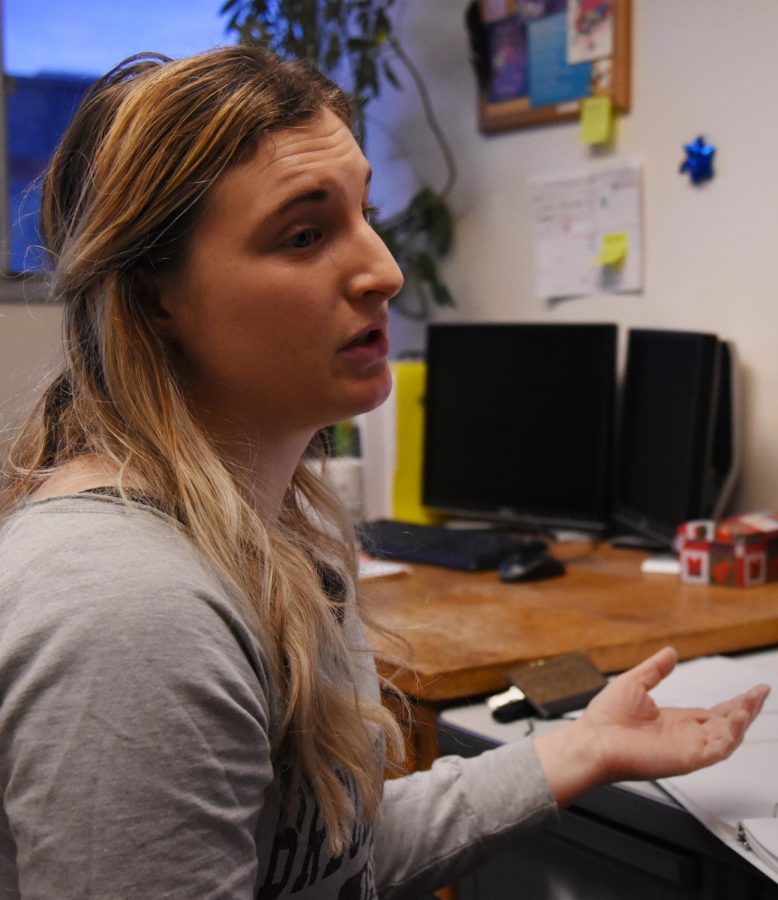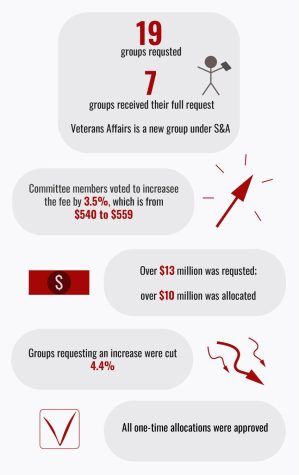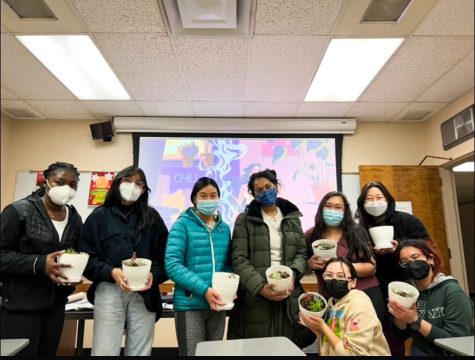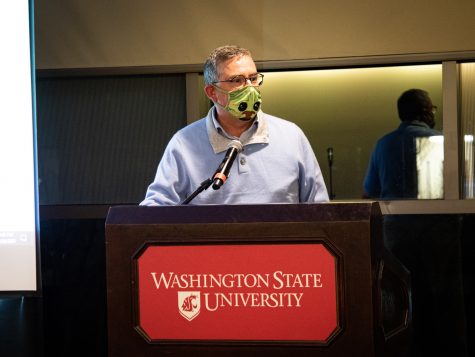Grad students want changes to housing
Rates, stagnant pay, temporary housing not meeting needs
LINH NGUYEN | The Daily Evergreen
Stephanie Sjoberg, GPSA Housing and Dining Board member, defended small rent increases if needed.
February 12, 2018
As on-campus housing rent prices increase, some graduate students worry their living conditions are not improving and that price changes will disproportionately affect certain groups.
At a Graduate and Professional Students Association meeting in late January, some brought concerns to representatives of the university’s Housing and Dining offices, saying proper housing for graduate students was an important part of the university’s long-term development.
Rising rent prices are a problem for graduate students, GPSA President Shane Reynolds said. While rent has increased, Reynolds said, living conditions have not necessarily improved for many, which made him wonder where the money was going.
Stephanie Sjoberg, who is on GPSA’s Housing and Dining Board, said increase in rent occurs when buildings, like certain ones in Chief Joseph Village, are modified.
“They do go a little bit up, but the thing is, these prices actually include a lot of stuff — internet is included, cable is included, heat is included,” Sjoberg said. “I think there’s a little bit of miscommunication, and that’s where I was concerned.”
She said the Housing and Dining Board’s role was to approve increases in rent prices.
“We spend a lot of time talking about why we need to increase,” Sjoberg said, “and what’s the lowest possible increase we can make without having a budget problem.”
GPSA Vice President Amir Gilmore said increasing housing prices would be a bigger threat to international students, many of whom are limited to 20 hours of work per week. Graduate students’ stipends have also remained stagnant from year to year, Gilmore added.
“The point of university housing is for students to have that accessibility at an affordable price,” he said, “versus going to a management company not affiliated with the university.”
Gilmore said he understands the current financial state WSU is in, but thinks there needs to be a conversation about finding the middle ground between Housing and Dining Services and graduate students.
For Cristian Olaya, a plant pathology doctoral candidate and GPSA member, finding a place to live after moving to Pullman from Colombia was the first challenge.
“[I had to] do a lot of research, mainly because it was my first time in the United States,” Olaya said. “To have an apartment outside the university was not possible because I didn’t have any credit card or bank experience.”
He said some graduate students face the problem of finding roommates who will stay for the entire academic year.
Olaya said another common problem is the need for short-term housing for graduate students who come to Pullman for a semester or less.
Bob Tattershall, Housing and Dining Services director, said temporary housing has been available for visiting faculty and staff. Valley Crest Village on the east side of campus has five apartments specifically for visiting faculty who only stay for a few months, he said. Tattershall said there could be space set aside for temporary graduate students; however, they would need to know how many rooms are necessary.
“Once [GPSA] understand[s] how big the problem is, then we gotta make sure that we keep the right amount of space available,” Tattershall said, “but not too much space.”
Reynolds supported Olaya’s short-term housing idea. Since visiting faculty members are allowed to have short-term housing, so should graduate students who are temporarily staying at WSU, he said.
“If they opened a temporary housing similar to faculty,” Reynolds said, “it would really help out.”


















